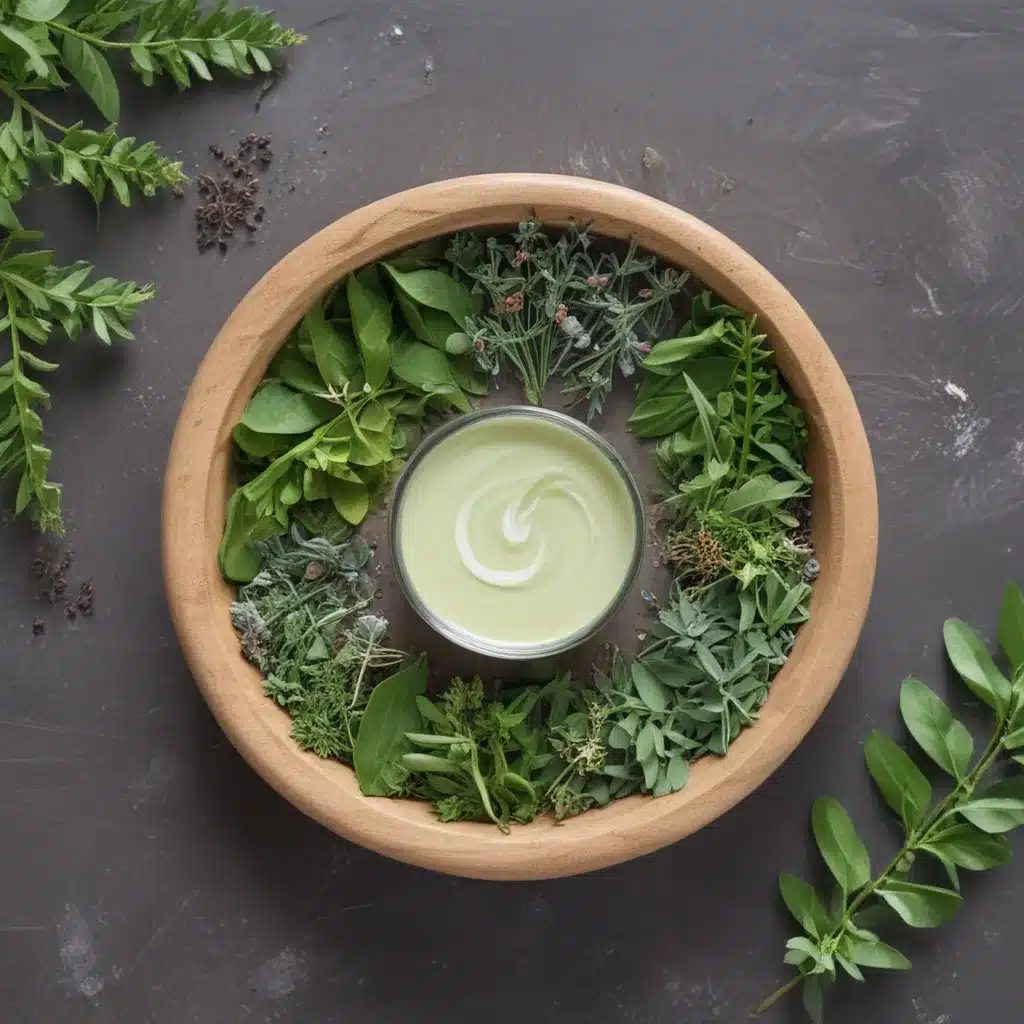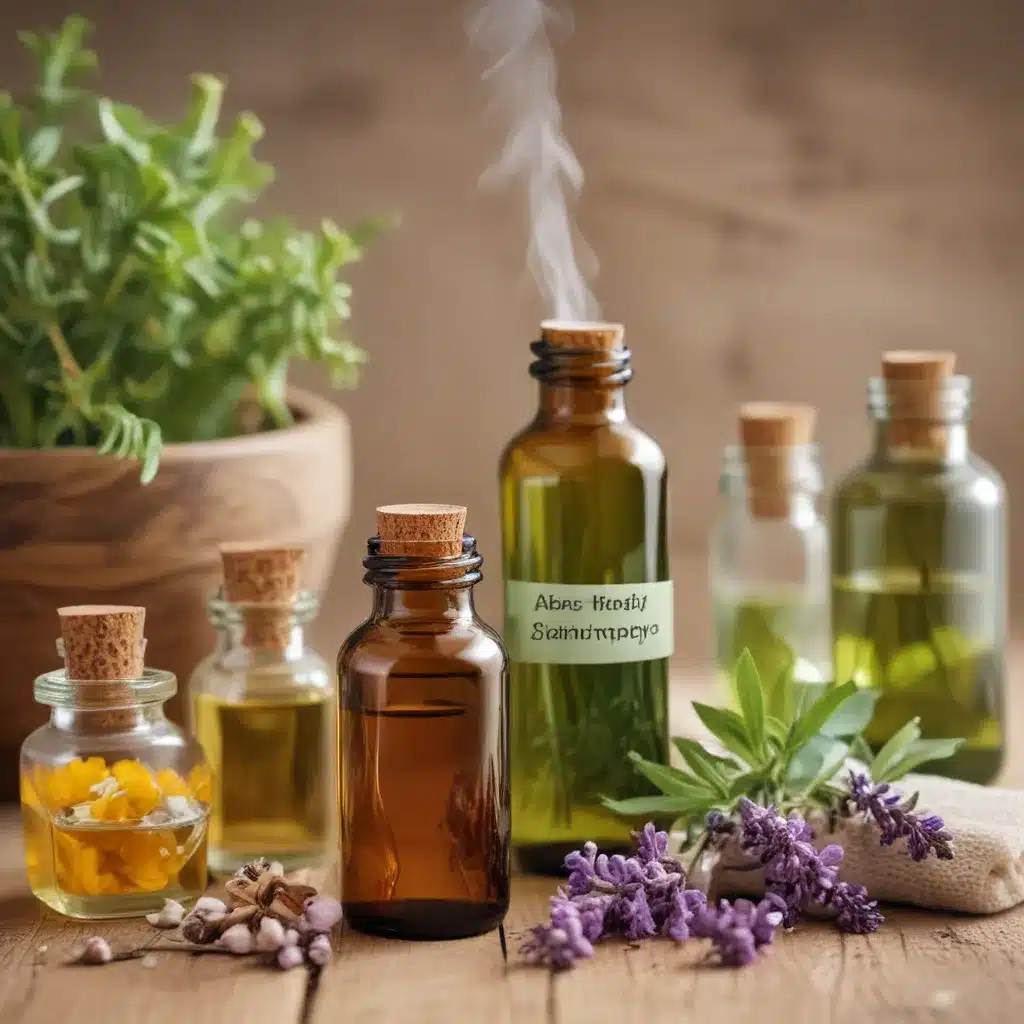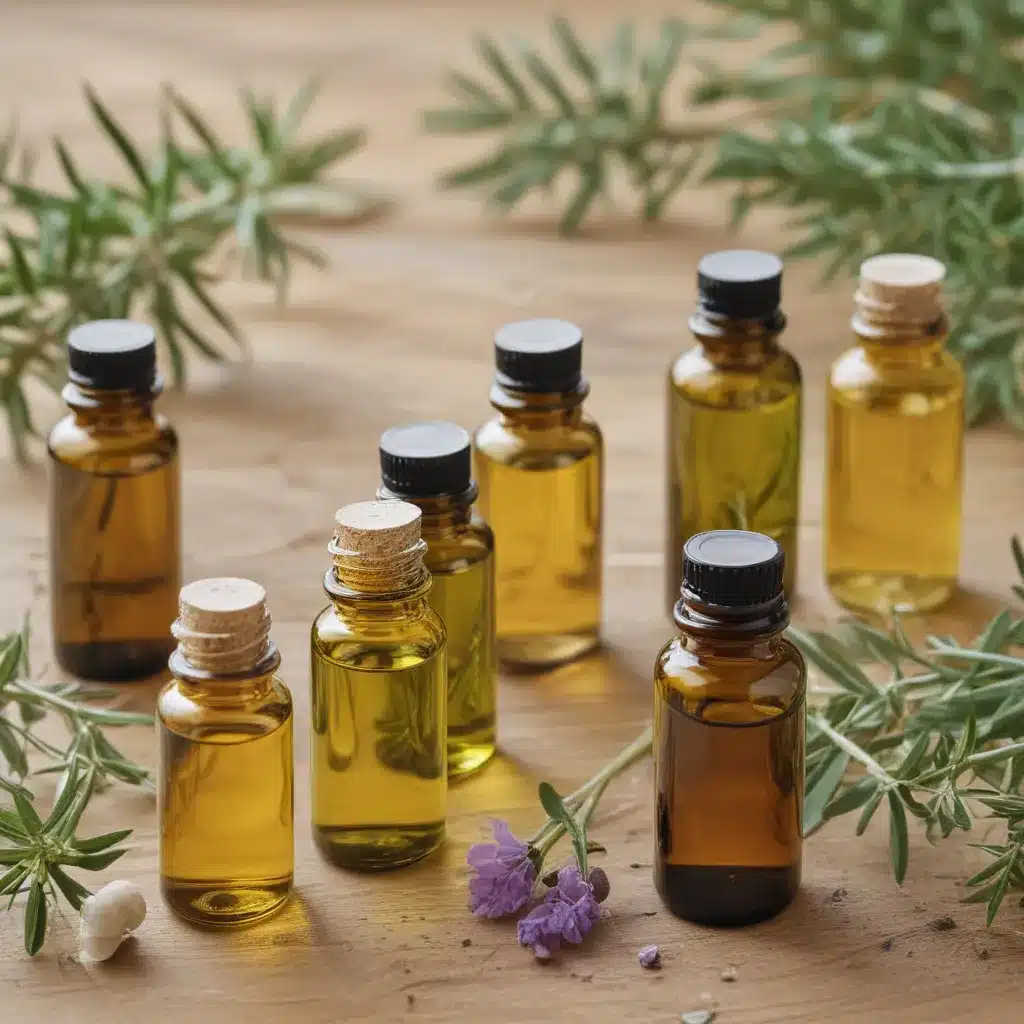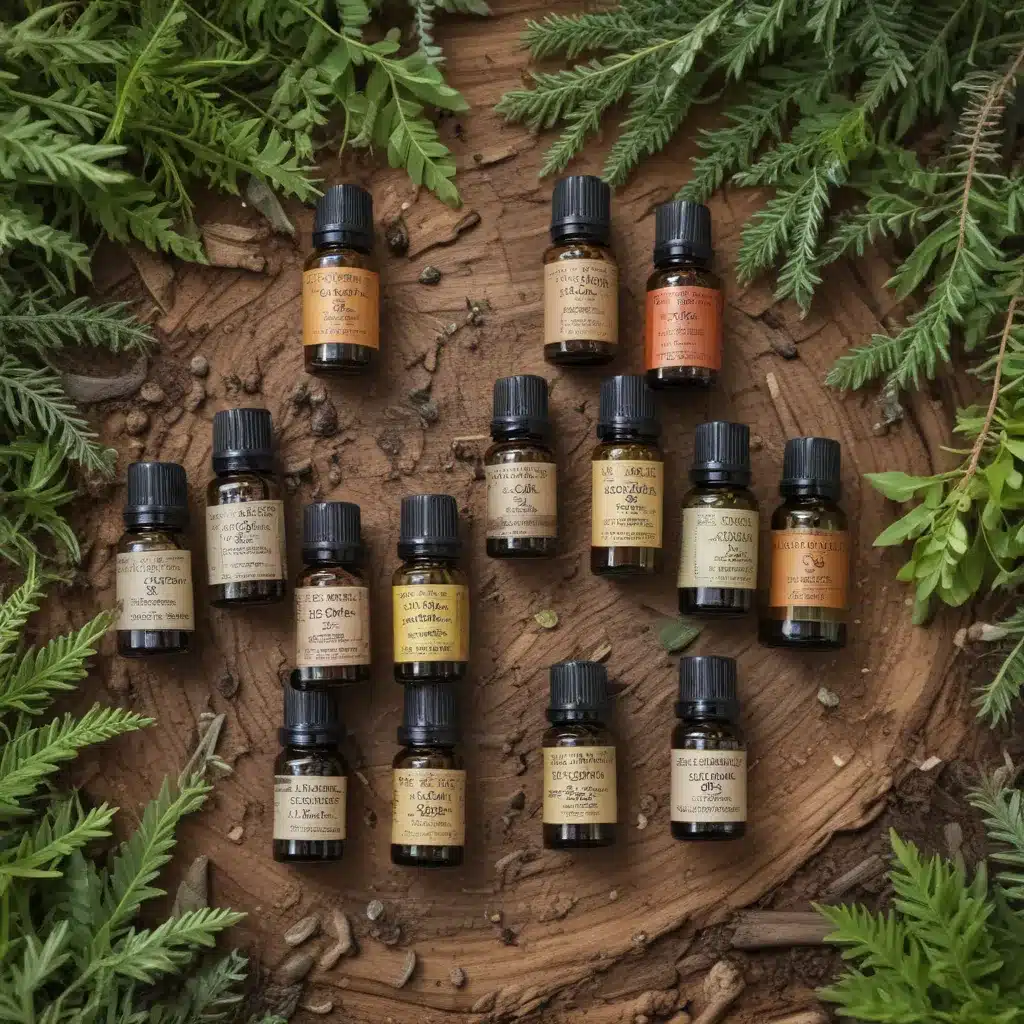
Lavender’s fascinating fragrance isn’t just for show – its relaxing properties have intrigued researchers for years. The subtle scent of lavender has been linked to various health benefits, but how does it really work its magic? Delve into the domain of lavender’s soothing secrets as we unravel the intricate science behind its calming effects on the mind and body.
Lavender’s Aromatic Compounds
Lavender’s essential oils contain aromatic compounds that contribute to its soothing scent and therapeutic properties. Through aromatic compounds analysis and scent perception studies, researchers have identified the key components responsible for lavender’s distinctive fragrance and calming effects. One of the primary aromatic compounds found in lavender is linalool, known for its stress-reducing and anti-anxiety properties. Linalool interacts with neurotransmitters in the brain, such as gamma-aminobutyric acid (GABA), which helps regulate anxiety levels.
Another significant compound in lavender is linalyl acetate, which adds to its floral aroma and is believed to have sedative effects, promoting relaxation and improving sleep quality. These compounds work synergistically to create the overall calming and soothing scent associated with lavender. Studies have shown that inhaling lavender essential oil can lead to a reduction in perceived stress and anxiety levels, making it a popular choice for aromatherapy and relaxation practices.
The critical mixture of aromatic compounds in lavender not only influences its scent but also plays a vital role in its therapeutic benefits. Understanding the chemical composition of lavender through analysis of its aromatic compounds provides valuable insights into how this plant can positively impact our well-being. By harnessing the power of these natural compounds, we can tap into lavender’s potential to promote relaxation and enhance our overall sense of calm.
Impact on Nervous System
The interaction between lavender’s aromatic compounds and the nervous system is key to understanding its impact on relaxation and stress reduction. When lavender scent is inhaled, it triggers a response in the nervous system, leading to a cascade of effects that promote a sense of calmness and relaxation. This response occurs through the olfactory system, where the molecules from lavender reach the brain’s limbic system, known as the emotional center.
Lavender’s impact on the nervous system is profound. It can help regulate the body’s stress response by reducing the levels of cortisol, the stress hormone, in the bloodstream. This leads to a decrease in feelings of anxiety and tension. Additionally, the nervous system response to lavender can also result in lowered heart rate and blood pressure, further contributing to a state of relaxation.
The calming effects of lavender on the nervous system can be particularly beneficial for individuals dealing with insomnia or high levels of stress. By incorporating lavender into their environment, whether through essential oils, sachets, or candles, people can positively influence their nervous system’s response to stressors, promoting a greater sense of well-being and tranquility.
Neurotransmitter Modulation
Upon inhalation, lavender’s aromatic compounds modulate neurotransmitters in the brain, influencing relaxation and stress levels. Neurotransmitter regulation plays a vital role in our mental and emotional well-being, and lavender has been shown to interact with these chemical messengers, such as serotonin and GABA, which are associated with mood regulation and stress response.
Studies suggest that lavender can help regulate neurotransmitters by either inhibiting excitatory neurotransmitters that can lead to increased stress responses or by enhancing inhibitory neurotransmitters that promote relaxation. This modulation can lead to a calming effect on the brain, helping to reduce feelings of anxiety and stress.
Lavender’s ability to modulate neurotransmitters also extends to stress hormone modulation. By influencing neurotransmitters like serotonin, lavender may indirectly affect the release of stress hormones such as cortisol. High cortisol levels are often associated with stress and anxiety, so by regulating these hormones, lavender can help promote a more relaxed state of mind.
Stress Response Reduction
When it comes to stress response reduction, lavender has been shown to have calming effects on the body. I will explore how lavender can induce relaxation and investigate into the mechanisms behind its stress-relieving properties. Understanding how lavender works to reduce stress can provide valuable insights into incorporating it into daily routines for enhanced well-being.
Calming Effects on Stress
Experiencing stress can greatly decrease when incorporating lavender into daily relaxation routines. Lavender’s calming effects on stress are remarkable. Here’s why it works so well:
- Reduces Cortisol Levels: Lavender helps lower the stress hormone cortisol in the body.
- Promotes Relaxation: Its soothing aroma induces a sense of calmness and relaxation.
- Improves Sleep Quality: Using lavender before bedtime can lead to better sleep quality.
- Enhances Mood: The scent of lavender can uplift mood and alleviate feelings of anxiety.
Relaxation Through Lavender
Lavender’s ability to reduce stress responses is a key factor in promoting relaxation and overall well-being. When using lavender for relaxation, incorporating techniques like lavender massage can amplify its calming effects. The gentle scent and soothing properties of lavender can help ease tension in both the body and mind. Lavender massage involves applying diluted lavender essential oil onto the skin through gentle, rhythmic movements, enhancing the relaxation experience. Pairing this with relaxation techniques such as deep breathing or meditation can create a tranquil environment, further reducing stress levels. By integrating lavender into your relaxation routine through techniques like lavender massage, you can harness its stress-relieving benefits to cultivate a sense of calm and inner peace.
Stress Relief Mechanisms
Incorporating stress relief mechanisms into daily routines can greatly reduce the body’s stress response, promoting overall well-being and relaxation. Understanding how to manage stress is crucial for maintaining a healthy lifestyle. Here are four ways stress relief mechanisms work to reduce stress hormone levels and promote relaxation:
- Activation of Neurological Pathways: Engaging in activities like deep breathing or meditation can activate neurological pathways that help regulate stress responses.
- Release of Endorphins: Physical exercise triggers the release of endorphins, which are natural mood lifters that help reduce stress levels.
- Promotion of Mindfulness: Practicing mindfulness techniques can enhance awareness of stress triggers and help manage reactions effectively.
- Improvement in Sleep Quality: Adequate rest and relaxation contribute to lower stress hormone levels, promoting a more relaxed state of being.
Sleep Quality Improvement
Improving sleep quality can be achieved by incorporating lavender’s relaxing properties into your bedtime routine. Sleep hygiene practices and relaxation techniques play an important role in ensuring a restful night’s sleep. Lavender, with its calming scent, has been shown to enhance sleep patterns and promote relaxation, making it a valuable addition to your nighttime regimen.
Sleep disorders can have a major impact on our overall well-being, affecting both physical and mental health. By creating a soothing environment with the help of lavender, you can potentially alleviate symptoms of sleep disorders and improve the quality of your rest. Whether it’s difficulty falling asleep, staying asleep, or waking up feeling refreshed, lavender may offer a natural solution to enhance your sleep experience.
Incorporating lavender into your nightly routine can signal to your brain that it’s time to unwind and prepare for sleep. The gentle aroma of lavender can help reduce anxiety and stress, paving the way for a more peaceful and rejuvenating slumber. By integrating this fragrant herb into your sleep rituals, you may find yourself enjoying deeper, more restorative sleep, ultimately waking up feeling more energized and ready to face the day ahead.
Anxiety and Depression Relief
Utilizing the calming properties of lavender can aid in relieving symptoms of anxiety and depression, promoting a sense of relaxation and well-being. When dealing with these mental health challenges, incorporating lavender into your routine can be a gentle yet effective way to help manage symptoms. Here are four ways in which lavender can assist in alleviating anxiety and depression:
-
Mindfulness Techniques: Lavender can enhance mindfulness practices by creating a soothing environment that encourages focus and presence in the moment.
-
Relaxation Methods: The aroma of lavender is known to reduce stress and promote relaxation, making it a valuable tool in various relaxation techniques.
-
Breathing Exercises: Pairing the inhalation of lavender with deep breathing exercises can amplify the calming effects, helping to ease feelings of anxiety and tension.
-
Meditation Practices: Incorporating lavender into meditation sessions can create a peaceful atmosphere that aids in centering the mind and promoting emotional balance.
Anti-Inflammatory Effects
I found that lavender’s anti-inflammatory effects are quite impressive. It can soothe skin inflammation and also reduce muscle soreness. These properties make lavender a versatile and beneficial ingredient in skincare and aromatherapy products.
Soothes Skin Inflammation
Lavender’s anti-inflammatory effects can help soothe skin inflammation effectively. When applied topically, lavender can calm irritated skin and reduce redness and swelling. Here are four ways lavender aids in soothing skin inflammation:
- Reduces Redness: Lavender’s anti-inflammatory properties can help decrease redness caused by skin irritation.
- Soothes Irritation: The soothing effects of lavender can help calm irritated skin, providing relief.
- Promotes Healing: Lavender can aid in promoting the healing process of inflamed skin, speeding up recovery.
- Moisturizes Skin: In addition to reducing inflammation, lavender can also help improve skin hydration, contributing to overall skin health.
Reduces Muscle Soreness
When using lavender for reducing muscle soreness, its anti-inflammatory effects can provide effective relief. Lavender’s ability to reduce muscle inflammation makes it a valuable tool for pain management and recovery methods. The soothing aroma of lavender also contributes to stress relief, enhancing the relaxation techniques used during muscle recovery. Incorporating lavender into post-workout routines can aid in soothing sore muscles and promoting relaxation, ultimately improving overall well-being. Below is a table highlighting the key benefits of lavender in reducing muscle soreness:
| Benefits of Lavender for Muscle Soreness |
|---|
| Reduces inflammation |
| Eases muscle tension |
| Promotes relaxation |
| Enhances pain management |
| Facilitates stress relief |
Antioxidant Properties
With its powerful antioxidant properties, lavender is known to help combat free radicals in the body. This can lead to various health benefits, including reducing oxidative stress and promoting overall well-being. Here are some key points to understand how lavender’s antioxidant properties work:
-
Free Radical Scavenging: Lavender contains antioxidants that neutralize free radicals, which are unstable molecules that can cause damage to cells and contribute to aging and various diseases.
-
Oxidative Stress Relief: By scavenging free radicals, lavender helps reduce oxidative stress in the body. This, in turn, can lower the risk of chronic conditions like heart disease, diabetes, and certain types of cancer.
-
Cell Protection: The antioxidants in lavender protect cells from oxidative damage, promoting cellular health and functioning.
-
Anti-Inflammatory Effects: Lavender’s antioxidant properties also have anti-inflammatory effects, which can help alleviate inflammation in the body and reduce the risk of inflammatory conditions.
Understanding how lavender’s antioxidant properties work can provide insights into its potential health benefits and why it is considered a valuable natural remedy for promoting overall wellness.
Impact on Heart Rate
Having discussed lavender’s antioxidant properties and their role in combating free radicals, the focus now shifts to exploring its impact on heart rate. When it comes to heart rate variability, which is the variation in time intervals between heartbeats, lavender has shown promising effects. Studies suggest that inhaling lavender essential oil can lead to an increase in heart rate variability, indicating a more important and flexible cardiovascular system.
Moreover, the relaxation response induced by lavender is closely linked to its influence on heart rate. The calming and soothing aroma of lavender has been found to trigger the body’s relaxation response, leading to a decrease in heart rate. This response is critical in reducing stress and promoting a sense of tranquility.
Incorporating lavender into daily routines, whether through aromatherapy, massages, or baths, can potentially help in regulating heart rate and promoting overall cardiovascular health. By enhancing heart rate variability and eliciting the relaxation response, lavender offers a natural and gentle way to support the well-being of the heart and the body as a whole.
Blood Pressure Regulation
Exploring lavender’s potential impact on blood pressure regulation reveals its intriguing ability to influence cardiovascular health. As someone interested in relaxation techniques and hypertension management, understanding how lavender may affect blood pressure variability through relaxation therapy is fascinating.
Here are four key points to ponder:
-
Hypertension Management: Lavender aromatherapy has shown promising results in helping to manage hypertension. Studies suggest that the inhalation of lavender essential oil can lead to a decrease in blood pressure levels, contributing to better overall cardiovascular health.
-
Relaxation Therapy: The use of lavender as a relaxation therapy has been linked to reduced stress and anxiety levels, which are often correlated with high blood pressure. By promoting relaxation, lavender may indirectly help in regulating blood pressure.
-
Blood Pressure Variability: Research indicates that regular exposure to lavender scent may lead to more stable blood pressure readings over time. This suggests that incorporating lavender into relaxation routines could potentially aid in keeping blood pressure within a healthy range.
-
Potential Complementary Approach: While not a standalone treatment for hypertension, incorporating lavender into existing relaxation practices may offer a complementary approach to traditional blood pressure management strategies.
Understanding how lavender’s relaxing properties tie into blood pressure regulation opens up a world of possibilities for those seeking natural ways to support their cardiovascular well-being.
Muscle Relaxation Mechanisms
After observing lavender’s positive effects on blood pressure regulation, it is interesting to explore how lavender influences muscle relaxation mechanisms. When it comes to muscle relaxation techniques, scientific evidence suggests that lavender essential oil may offer significant benefits. Studies have demonstrated that the exploration or topical application of lavender essential oil can result in decreased muscle tension and improved relaxation.
| Scientific Evidence | Lavender Essential Oil | Relaxation Benefits |
|---|---|---|
| Study 1: | Topical Application | Reduced Muscle Tension |
| Study 2: | Inhalation | Enhanced Relaxation |
| Study 3: | Massage with Lavender | Improved Muscle Relaxation |
| Study 4: | Lavender Bath Soak | Decreased Muscle Stiffness |
| Study 5: | Lavender Aromatherapy | Muscle Relaxation Promotion |
The power of lavender in promoting muscle relaxation is further supported by its calming aroma, which can help alleviate stress and anxiety, contributing to overall muscle tension reduction. These findings indicate that incorporating lavender essential oil into relaxation routines may be a natural and effective way to unwind and release muscle stiffness. As I explore the intricacies of lavender’s influence on muscle relaxation, the scientific backing for its benefits becomes increasingly apparent, offering a potential solution for those seeking a holistic approach to relaxation and stress relief.
Cognitive Performance Enhancement
In investigating cognitive performance enhancement, one cannot overlook the potential benefits that lavender essential oil may offer. When considering the optimization of cognitive function, the use of lavender essential oil has shown promising results in various studies. Here are some ways in which lavender may enhance cognitive performance:
-
Memory Retention Enhancement: Research suggests that the aroma of lavender may help improve memory retention, making it a valuable tool for studying or remembering important information.
-
Attention Span Improvement: The soothing scent of lavender has been linked to improved focus and attention, potentially aiding individuals in staying attentive and engaged in tasks for longer periods.
-
Cognitive Function Optimization: By promoting relaxation and reducing stress levels, lavender essential oil may contribute to overall cognitive function optimization, leading to better decision-making and problem-solving abilities.
-
Mental Clarity Enhancement: The calming effects of lavender can help clear the mind of clutter and distractions, fostering mental clarity and enabling individuals to think more clearly and critically.
Exploring the cognitive benefits of lavender essential oil reveals its potential to not only relax the mind but also sharpen cognitive abilities, making it a versatile tool for those seeking to enhance their mental performance.
Scent and Emotional Regulation
When it comes to aromatherapy, scents like lavender can have a profound impact on mood regulation. The way we perceive smells can directly influence how we feel emotionally. Understanding the connection between scent and feelings can provide valuable insights into how we can better regulate our emotions.
Aromatherapy and Mood
Lavender’s aromatic essence has been found to play a significant role in influencing mood and emotional regulation through the practice of aromatherapy. When it comes to benefits of aromatherapy and mood enhancement through scent, here are some key points to take into account:
- Calming Effects: Lavender scent can induce a sense of calmness and relaxation, reducing stress and anxiety levels.
- Improved Sleep Quality: Inhaling lavender fragrance before bedtime can promote better sleep quality and help in combating insomnia.
- Enhanced Mood: The pleasant aroma of lavender can uplift mood and create a more positive emotional state.
- Stress Reduction: Utilizing lavender oil in aromatherapy can aid in stress reduction and bring about a sense of tranquility and balance.
Smell and Feelings
The connection between scent and emotional regulation is a fascinating aspect of human experience that can greatly impact our feelings and well-being. Olfactory perception plays a pivotal role in how we interpret and react to different scents, influencing our emotional response. Smell psychology explores the intricate relationship between our sense of smell and its effects on our mood and emotions. Certain fragrances, like lavender, have been found to have relaxation benefits due to their ability to trigger positive emotional responses in the brain. Understanding how scents can affect our feelings can help us harness the power of aromatherapy to promote relaxation and overall emotional well-being. By incorporating pleasant scents into our environment, we can potentially enhance our emotional state and create a more soothing atmosphere.
Lavender in Aromatherapy
Incorporating lavender essential oil into aromatherapy routines can promote relaxation and stress relief. The aromatherapy benefits of lavender scent are well-documented and can have a calming effect on the mind and body. Here are four ways in which lavender can enhance your aromatherapy experience:
-
Calming Effects: The soothing scent of lavender can help reduce feelings of anxiety and promote a sense of calmness. Inhaling lavender essential oil can trigger the release of neurotransmitters that promote relaxation and reduce stress levels.
-
Improved Sleep: Lavender has been shown to have sleep-inducing properties, making it a popular choice for those struggling with insomnia or poor sleep quality. Using lavender oil in aromatherapy before bedtime can help create a relaxing environment conducive to restful sleep.
-
Stress Relief: The therapeutic benefits of lavender extend to stress relief, with the scent of lavender helping to lower cortisol levels and promote overall wellbeing. Incorporating lavender into your aromatherapy routine can be a simple yet effective way to manage stress.
-
Mood Enhancement: The pleasant aroma of lavender can uplift the spirits and improve mood. Using lavender oil in aromatherapy sessions can help combat feelings of depression and create a more positive emotional state.
Conclusion
After delving into the science behind lavender’s relaxing properties, it is clear that this fragrant herb has a profound impact on our nervous system, neurotransmitter levels, stress response, sleep quality, muscle relaxation, cognitive performance, and emotional regulation. The evidence strongly supports the idea that lavender truly does have the ability to promote relaxation and calmness, making it a valuable tool in aromatherapy practices.





















